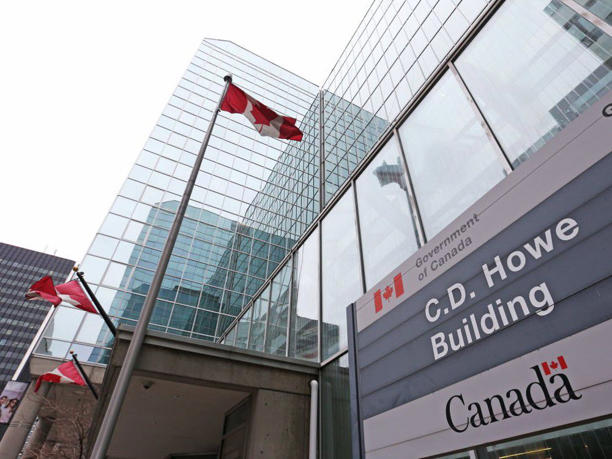2022. 7. 21. 23:48ㆍ■ 국제/CANADA
FIRST READING: Canada's immigration backlog has never been worse (msn.com)
FIRST READING: Canada's immigration backlog has never been worse


First Reading is a daily newsletter keeping you posted on the travails of Canadian politicos, all curated by the National Post’s own Tristin Hopper. To get an early version sent direct to your inbox every Monday to Thursday at 6:30 p.m. ET (and 9 a.m. on Saturdays), sign up here.
TOP STORY
Amid history-making line-ups at Canadian airports and passport offices, an absolutely crushing backlog at Immigration, Refugees and Citizenship Canada is putting them all to shame.
According to numbers obtained from the IRCC by the immigration-focused publication CIC News, there are now 2.7 million people waiting for Ottawa to process their immigration application.
The backlog encompasses every application filed to IRCC, from citizenship to visas to requests for permanent residency. The backlog of citizenship applications alone stands at 444,792, while most of the list (1.7 million) is applications for temporary residence.
Not only is it the worst immigration backlog of all time, but it is growing exponentially with each passing week. This time last year, the backlog was just 1.5 million names, according to CIC News. In just the last 30 days, the list has grown by 300,000 — an increase of roughly 1,000 new applicants per day.
All told, there are now more people awaiting a reply from the IRCC than there are residents of Atlantic Canada. As of press time, the population of all four Atlantic provinces (including Newfoundland and Labrador) is roughly 2.5 million.
If the backlog continues to grow at the current rate, it will only be another four months until the number of applicants awaiting processing by the IRCC is equivalent to 10 per cent of the Canadian population of 38 million.
This has thrown immigration wait times into complete disarray at the precise time that Canada is touting itself as a haven for refugees, most notably from Afghanistan and Ukraine.
Many of those 2.7 million represent foreign nationals dwelling in a kind of awkward limbo as they spend years awaiting updates from the IRCC.
Last month, Pakistani man Kazim Ali told CTV he applied for Canada’s Express Entry program in 2020, when the estimated wait for a reply was six months. Two years later, he hasn’t heard a thing, bringing the life of he and his wife “to a screeching halt” as they delay career choices and even children until they can hear back.
An increasingly overwhelmed IRCC is also making it difficult to reliably schedule any event in Canada that involves foreign nationals. Last month, both a Montreal AIDS symposium and a major Toronto tech conference saw dozens of invitees unable to attend because of difficulties in obtaining Canadian visas.
In a recent report by the Business Council of Canada, Canadian employers cited “processing delays” as the top barrier to recruiting international talent.
“Frustrated by application processing delays, complex rules, and the cost of navigating the system, fewer than a quarter (of survey respondents) say the immigration system currently serves their business needs well,” it read.
In tandem with the increasing backlog has also been a precipitous rise in Federal Court cases from frustrated applicants demanding a reply from the IRCC.
They’re called “mandamus cases,” and it’s essentially an application for the court to order a response from IRCC. Before the pandemic there were only a few dozen mandamus cases per year. Last year, there were more than 400.
In prior statements, the federal government has largely attributed the crushing IRCC delays to the COVID-19 pandemic and the avalanche of refugee applications from Afghanistan and Ukraine. Last month, Prime Minister Justin Trudeau announced the formation of a special committee to figure out how to reduce wait times.
IN OTHER NEWS
Inflation is now at 8.1 per cent , meaning that the average quarter is now expected to lose two cents’ worth of purchasing power every year. However, there is a neat symmetry to the new number: T he last time inflation was this high (in 1983), the prime minister was Pierre Trudeau , the father of the current one.
The Okanagan – where Prime Minister Justin Trudeau held an impromptu series of photo ops earlier this week – traditionally isn’t very friendly to Liberals. In fact, the region is usually home to some of the safest Conservative seats in the country (including the one that used to be held by former Canadian Alliance leader Stockwell Day). It’s the kind of place that probably would have marshalled great throngs of protesters if they’d known Trudeau was coming. But as the Kelowna Daily Courier noted in a review of the visit, Trudeau’s arrival was so unexpected that he was successfully able to dodge any haters. “Anyone inclined to protest Trudeau’s visit would have been hard-pressed to know where to take their placards,” they wrote .
And columnist Andrew Potter is of the considered opinion that Ukraine should have expected that Canada would eventually betray them by giving sanctioned pipeline equipment to their mortal enemy, Russia. “When it comes to our foreign affairs, we don’t mean what we say,” wrote Potter in a column for The Line . “We will stand with you, unless it’s politically difficult.” As evidence, it still hasn’t been a full year since Canada promised to rescue its former allies from Taliban-held Afghanistan – before promptly abandoning almost all of them .
